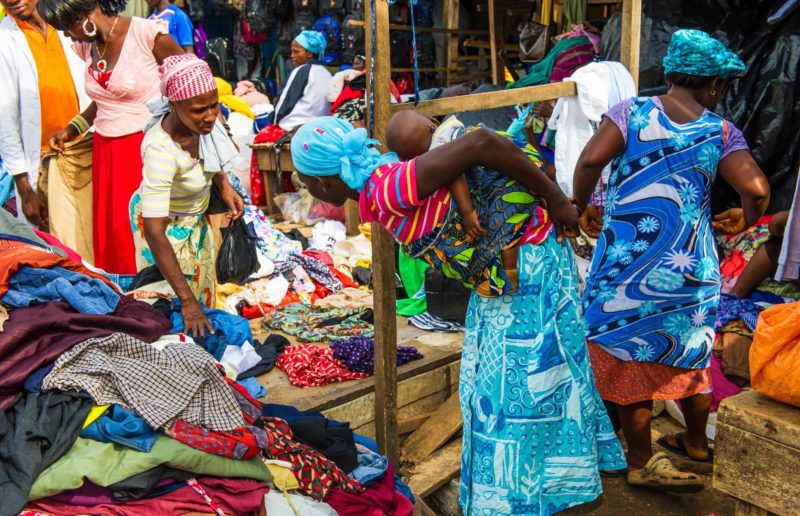Brussels, Belgium – In a determined effort to combat the escalating environmental crisis caused by the extensive dumping of textiles in Ghana, a delegation of secondhand clothes dealers from Kantamanto, Accra, has recently embarked on a visit to Brussels. The group aims to lobby for comprehensive legislation across Europe, compelling the fashion industry to play an active role in addressing this pressing issue.
Kantamanto, renowned as one of the largest secondhand clothing markets worldwide, has been grappling with an overwhelming influx of discarded garments. To confront this dire situation, the traders met with key stakeholders in the European Union, including Alice Bah Kuhnke, an MEP representing Sweden’s Green party, environmental organizations, and delegates from the European Commission and the European Environment Bureau. Their primary objective was to advocate for an expanded version of the extended producer responsibility (EPR) regulation, which would ensure that Ghana receives essential funding for managing the staggering 100 tonnes of clothing discarded at the market daily.
Under EPR policies, producers are legally obliged to contribute to the proper disposal of waste generated by their products. Notably, France stands as the sole European nation currently implementing EPR legislation encompassing the textile industry.
The Ghanaian traders passionately highlighted the urgent need for European-wide support to alleviate the environmental catastrophe devastating their country. By securing the backing of influential policymakers and environmental bodies, they strive to establish a system that ensures the fashion industry’s accountability and encourages sustainable practices.
With the fashion industry’s cooperation and financial contribution, Ghana aims to overcome the mounting challenges posed by the overwhelming textile waste influx. The visit to Brussels marks a significant step in the Ghanaian secondhand clothes dealers’ campaign to secure a sustainable future for their country and combat the adverse environmental impact of textile dumping.


